Christmas has started to feel icky to me. The more I read, watch and learn, the more the Christmas spirit is eclipsed by guilt over the amount of money we spend on junk that often comes at the cost of exploiting those in poverty or negatively impacting our planet. But what if our gifts had the dual purpose of celebrating one another AND providing opportunities to empower vulnerable men, women and children to get out of poverty? This seems like a better reflection of a sacred and joyful holiday.
I curated this list by asking my online friends for recommendations of sites they know to have high standards for quality as well as a commitment to maintaining ethical business standards. In addition to these key requirements, I also wanted to list companies that are in my price range, which tends to be closer to the $50 or below range for Christmas gifts.
For each site, I’ve picked at least one item either I or a father, husband, friend, family member, teacher or child might like to receive (each is less than $50 unless noted otherwise). I noticed many of the sites offer either free shipping or 10 or 15 percent off of your first order if you sign up for their newsletter. I am not receiving any kind of payment for sharing this, though I hope you all buy from here so that your gifts will empower others and promote a prettier planet. Feel free to add your own recommendations in the comments section!
Here are the amazing companies I found. I confess some made me cry as I read the “My Story” section of their websites. Beautiful things are happening in this world in spite of it all–lives are being transformed and people are creating. And we get to be a part of it!
Happy giving;-)
EMPOWERS: Survivors of human trafficking in the U.S.
From their site: “We exist to empower survivors of human trafficking through meaningful employment and economic independence.” You can also find their jewelry in shops around the U.S.–check here to see if there are any near you. This company has a really cool story: “Each BRANDED item is stamped with an initial and a number. The initial belongs to the survivor who made your cuff. You can read her story on our website. The number is your unique number in the Collective. You can register this number and send a Message of Hope to our survivors.” Love the redemption in this. These earrings are really beautiful:

PROMOTES: Buying handmade items from small businesses
This company is run by my sister-in-law out of Marietta, GA. She creates jewelry, trays for display, and home décor. From her site: “Her mission is to preserve beautiful specimens from lace, botanicals and papers in glass as an archive of the past in a clean, minimal and modern way using traditional stained glass processes.” I love these little vases/terrariums:

EMPOWERS: Farmers in Ghana
I can certainly help a sister out through eating more chocolate. From their site: “Divine Chocolate is co-owned by the 85,000 farmer members of Kuapa Kokoo, the cooperative in Ghana that supplies the cocoa for each bar of Divine. As owners, they get a share in the profits, a say in the company, and a voice in the global marketplace.” AND they sell chocolate–and the site has some fun chocolate recipes, too! You can buy a variety of bars of chocolate for stockings (or anytime, really) or order bars in a 10-pack. This is what I’m eyeing…

EMPOWERS: A variety of artisans around the world
In addition to jewelry, accessories and clothing for women, this site actually has many gifts for men! From their site: “Do Good Shop runs like a business, but is actually a nonprofit organization. This means that not only does each purchase create jobs for vulnerable artisans, but also ALL of our net proceeds go directly back into supporting the artisans and their communities, and educating others about this great need.” My hubby would really dig this journal (as would I):

EMPOWERS: Women in China
This company was recommended to me by a friend from when I lived in China. From their site: “Evergreen Cards is a rural economic development project that was founded by Evergreen team members to provide women with a source of supplemental income and to touch their lives in a tangible way with the love of God.” These would make a great hostess gift or gift for a teacher:

PROMOTES: Local manufacturing using recycled materials
This site has a wide range of toys for children. Though they are plastic, they are much sturdier than your typical plastic toy and they use recycled materials. From their site: “From our 100% recycled materials to our US-based manufacturing, we’re raising awareness about sustainability while delivering unquestionably safe products.” This would be a winner in our house:

EMPOWERS: Trafficking survivors in Cambodia, disadvantaged in Haiti, and those coming out of homelessness in Pennsylvania
This site includes a ton of information about the artisans involved and each product has a symbol indicating who made it. From their site: “We are creating products that care for the human race—giving opportunity for individuals to care for their children, families, and health. . . so that a new generation has a fighting chance to break the cycle of poverty.” They also lead trips abroad for people to learn about poverty and the garment industry.This company has some gorgeous clothing, men and women’s aprons, bags, and even dress shirts and neckties for men! (It is very difficult to find reasonably-priced, ethical clothing for men.)
My favorite from this site would be this wristlet:

EMPOWERS: Women in Ethiopia, Kenya and Tanzania
They sell very classy leather bags, skin products, journals, scarves, jewelry and bags. From their site: “Karama alleviates poverty by restoring dignity through creative, purposeful work for artisans, beginning in Africa.”
I love this scarf:

EMPOWERS: Women in Peru, Uganda and other countries
This site sells men’s and women’s clothing, bags, headware and accessories and some kid items as well. I liked a lot of the kids’ and men’s knit hats. From this site: “Our products, our partners, and our community work in unison to help people break the cycle of poverty, forever. We provide life-changing job opportunities to women in need. With each purchase you make we introduce you to the woman who made your product and invite you to visit her online profile to learn more about her.” Love that.
It’s so hard to find gifts for men! This site has a great scarf for guys:

EMPOWERS: Artisans in Africa and refugees in the U.S.
From the site: “The artisans who make the lovely items in our shop are some of the most oppressed and impoverished in the world, from Kenya to Ethiopia to refugees relocated to the United States. They are paid more than a fair wage and empowered by your purchase.” They also have a “charitable gift catalogue” where you can donate to practical needs of real women such as: “provide a mosquito net, food for one mom and child, an academic scholarship, fund literacy classes for women, provide a sewing machine, or rescue a pregnant girl.” Wow.
I’m in the market for Christmas decorations, so I loved this set:

But I also loved this because it is the tagline for my blog (and also Micah 6:8…):

PROMOTES: Sustainable consumption and production
A friend of mine recommended this Scandinavian company that has beautiful gifts. From their site: “We believe in responsible and sustainable consumption and production. We have selected brands and designers who believe in those same values. We choose products that are made of natural materials; produced with minimal impact on the environment, and that are safe and healthy for the consumers and to those who are part of the manufacturing process.” They sell jewelry, dish towels, blankets, napkins, glassware, and mugs. Though the dish towels are a bit pricier than I would usually pay at the $20 range for one, there are some really cute ones if you don’t mind the price.
These mugs and towels would make a good gift for a teacher, family member or friend:

And this (because we live in Colorado and actually have moose;-) )

EMPOWERS: Artisans around the world
This company partners with 29 artisan businesses in 12 countries around the world to create beautiful jewelry, bags, scarves, and ornaments. From their site: “We develop these artisan businesses through fair trade, connecting them to a global market and empowering them to grow sustainably.”
You can shop for gifts under $50 here. My pick would be these earrings:

EMPOWERS: Artistans from Haiti
This company empowers Haitians who create the bags, jewelry, home décor, toys and T-shirts for sale on the site. From the site: “Our mission is orphan prevention and we do that through job creation. Papillon is providing hope to Haitian Artisans with the dignity of a job, training, and the ability to create something new out of something discarded and seemingly unusable. We use metal, cardboard, aluminum, dirt, and paper to make jewelry and other beautiful things.” As soon as I get out of the baby stage and start wearing jewelry again, I would love a necklace like this (and it comes in many different colors!):

EMPOWERS: Refugees in Iraq, Syria and the U.S.
I met the CEO and founder of this organization two summers ago at a conference. This is an incredible organization, and this site is just one small part of what they are doing. In addition to soap and candles, you can buy chickens for a displaced family, medical treatment for a war survivor or water for families in conflict zones in Iraq. This is their mission: “We’re a coalition stretching across Iraq, Syria, the United States, and beyond, working together to unmake violence and create the more beautiful world our hearts know is possible.” These candles are really pretty:

EMPOWERS: Refugees in Chicago
From their site: “We engage, equip and employ refugee women in the Chicagoland area. It is our greatest desire to provide a space for refugee women to thrive as they rebuild their hopes and dreams in the United States.” They sell purses, wallets, eyeglass cases and journals from upcycled materials.
I like this journal:

EMPOWERS: Exploited men and women in Cambodia
This company came highly recommended from a friend. They sell accessories, apparel, bags, wallets, and cosmetic bags at a really reasonable price. From their site: “Located in Phnom Penh and the Saang District of Cambodia, Sak Saum is a ministry dedicated to the rescue, restoration, transformation and rehabilitation of vulnberable and exploited women and men.”
This is a great bag for a mom with more than one kid because it has a backpack option (and it’s only $35)!

EMPOWERS: Women in poverty
“Each time you shop at soaphope.com, 100% of the profits – yes, every dollar – goes to empower women to lift their lives, families, and communities from extreme poverty.” You can find gifts from $25 to $50 here. They also have collections for men, like this one for the man with a beard in your life:

EMPOWERS: Women in Uganda
From the site: “Sseko Designs uses fashion to create opportunity for women globally. We provide employment and scholarship opportunities to women in Uganda who are working to pursue their dreams and overcome poverty. To date, we’ve enabled 87 women to continue on to University! We also provide employment (along with access to a comprehensive social impact program) to our team of 50 women in Uganda.” They have really cute sandals, so I’ll need to bookmark this site for next summer;-) Most of the items were a bit out of our price range, but these earrings were cute and very reasonably priced:

EMPOWERS: Women coming out of trafficking in Asia
This company provides shelter, counseling, employment and education to women coming out of trafficking in Asia. From their site: “We provide life-changing opportunities through our Holistic Care Programs and our social enterprise where women create beautiful jewelry and become managers, accountants, graphic designers, and photographers.” They have some very affordable, classic pieces of jewelry like this one:

I would be remiss to not include coffee on this list. Travel with my husband always includes visits to multiple used bookstores accompanied by drinking coffee in local coffee shops that offer freshly roasted coffee and pour overs. So the Oregon-based Stumptown is “Adam Verner Approved” in addition to practicing ethical business. A great gift for a coffee lover would be to buy a coffee subscription and have a 12 oz. bag of coffee delievered every two weeks. But since this gets pricey if you want to drink more coffee, just a nice gift of a bag or two would make a nice gift. Ethiopian roasts are always good, so I’d probably pick this one on their site. Last year I bought my hubby his first coffee roaster from Sweet Maria’s and we eventually upgraded to this one and we now buy green beans and my husband roasts our coffee (only $6 a pound verses $20 a pound for good, freshly roasted beans!)
EMPOWERS: Women escaping trafficking in India
This is a company that partners with women in India to end sex trafficking. From their site: “Donations made during checkout at sudara.org go towards Sudara Freedom Fund and have helped fund safe housing for women escaping trafficking, equipment for new or growing sewing centers, microloans and back-to-school programs. One of our most recent opportunities, the Sunetha Home, is supporting long-term, systemic change by directly addressing issues that lead to generational sex work.”
These”punjammies” are a bit pricier than I would normally pay for loungewear at $54.00 each, but perhaps for a gift–and a worthy cause–they might be worth it. I liked these:

EMPOWERS: Artisans around the world
Although there are several actual brick and mortar shops, you can also find gifts online. This company works together with over 20,000 makers in 30 developing countries to give them an opportunity to sell their work in the global marketplace. From their site: “We are a non-profit social enterprise that partners with independent small-scale artisan groups, co-ops and workshops to bring their wares to our markets.” They sell jewelry, home décor, stationary, baskets, candles, cosmetics, kitchenware and more. They have so many cool nativity sets–we have this small one made of olive wood and really love it:

EMPOWERS: Women survivors of trafficking and addiction in the U.S.
This is their mission: “Thistle Farms’ mission is to HEAL, EMPOWER, AND EMPLOY women survivors of trafficking, prostitution, and addiction. We do this by providing safe and supportive housing, the opportunity for economic independence, and a strong community of advocates and partners.” An online friend recommended their non-toxic bug spray, lip balm, lotions, and pretty much everything else. They have some bath sets and smaller items for stocking stuffers that would make great gifts. Someone please buy me this bath soak set for Christmas…;-)

EMPOWERS: Disadvantaged women around the world
This site has a variety of beautiful jewelry, bags, journals and scarves for a really reasonable price. From their site: “We work with the artisans themselves and organizations that are helping women in difficult circumstances. Some women have been rescued from sex slavery. Others are raising handicapped children alone. Some are in war torn countries and others have HIV/AIDS and leprosy.”
Jewelry, bags, journalsThey have some very pretty, affordable jewelry–you can find all their gifts under $50 here. I liked this piece, called the Golden Kenyan Necklace:

They also have some really pretty scarves, like this one:

I feel like kids of every age love blocks. From their site: “Uncle Goose makes wooden blocks. We handcraft every set in Grand Rapids, Michigan, using choice materials from around the Great Lakes. And yes, we are 100% made in the USA.” In addition to letters and numbers, you can also find these kinds of blocks: constellations, sight words, birds, planets and famous women! We have an older version of this set of blocks with Chinese characters, but I love these, too:

PROMOTES: Reusing materials and leaving a smaller footprint
This is a great site if you have a hipster-type family member, teenager or college student you need to buy a gift for. I love their bags made from old seatbelts and a friend of mine says she’s had hers for 7 years and it’s not even ragged around the edges! These products are all handmade in Canada, though they ship worldwide. They sell bags, men’s wallets and even dog collars. I think my 15 year old niece might like this one…

A friend of mine who lives in Australia recommended this site. Want to skip buying more “stuff” altogether? At this site you can provide for basic needs of those in need such as: preschool classes, a veggie garden, a goat, well, and even a toilet! From their site: “Every item in TEAR’s Gift Catalogue represents a contribution to a long-term poverty-fighting project run by one of TEAR Australia’s Christian partners. Each project is tailored to that community’s needs, helping people gain the skills and resources they need to address local problems and come up with sustainable solutions.”
Other sites related to ethical shopping:
The Good Trade–a gorgeous site offering lots of articles and resources related to minimalism and being an ethical consumer.
Slavery Footprint–you can take a quick quiz to find out how where you live and what you buy impacts the world.
Please leave links to other ethical sites you love. There were so many more that I couldn’t include. And share this post to spread the word on these amazing companies.
If you like posts like this, sign up for my newsletter so you won’t miss a post!
 * Images from various shops
* Images from various shops
**THIS POST WAS UPDATED 11/16/17


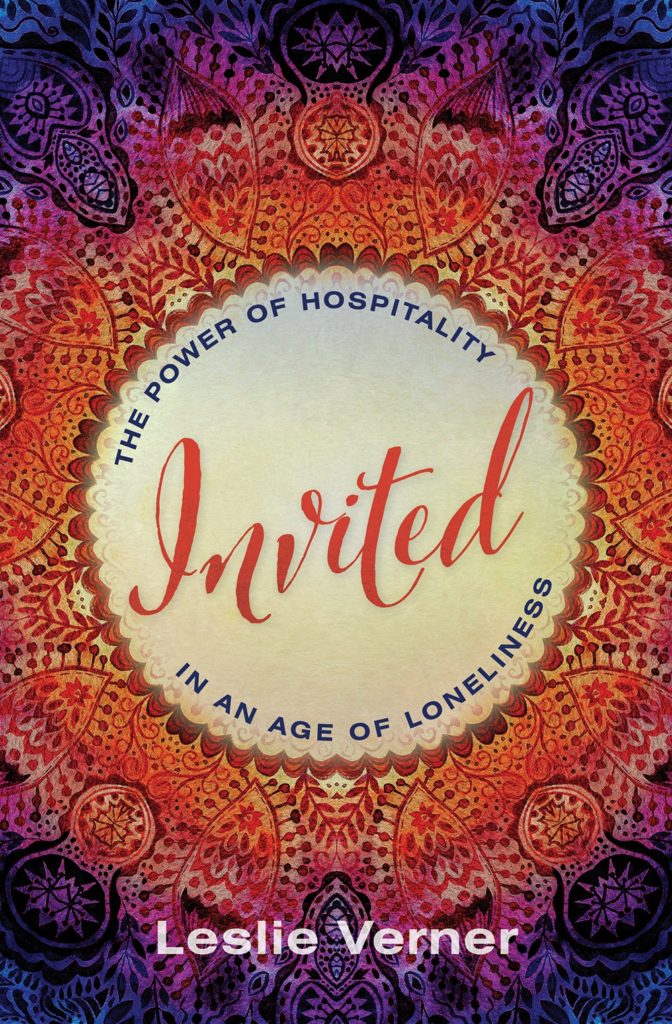

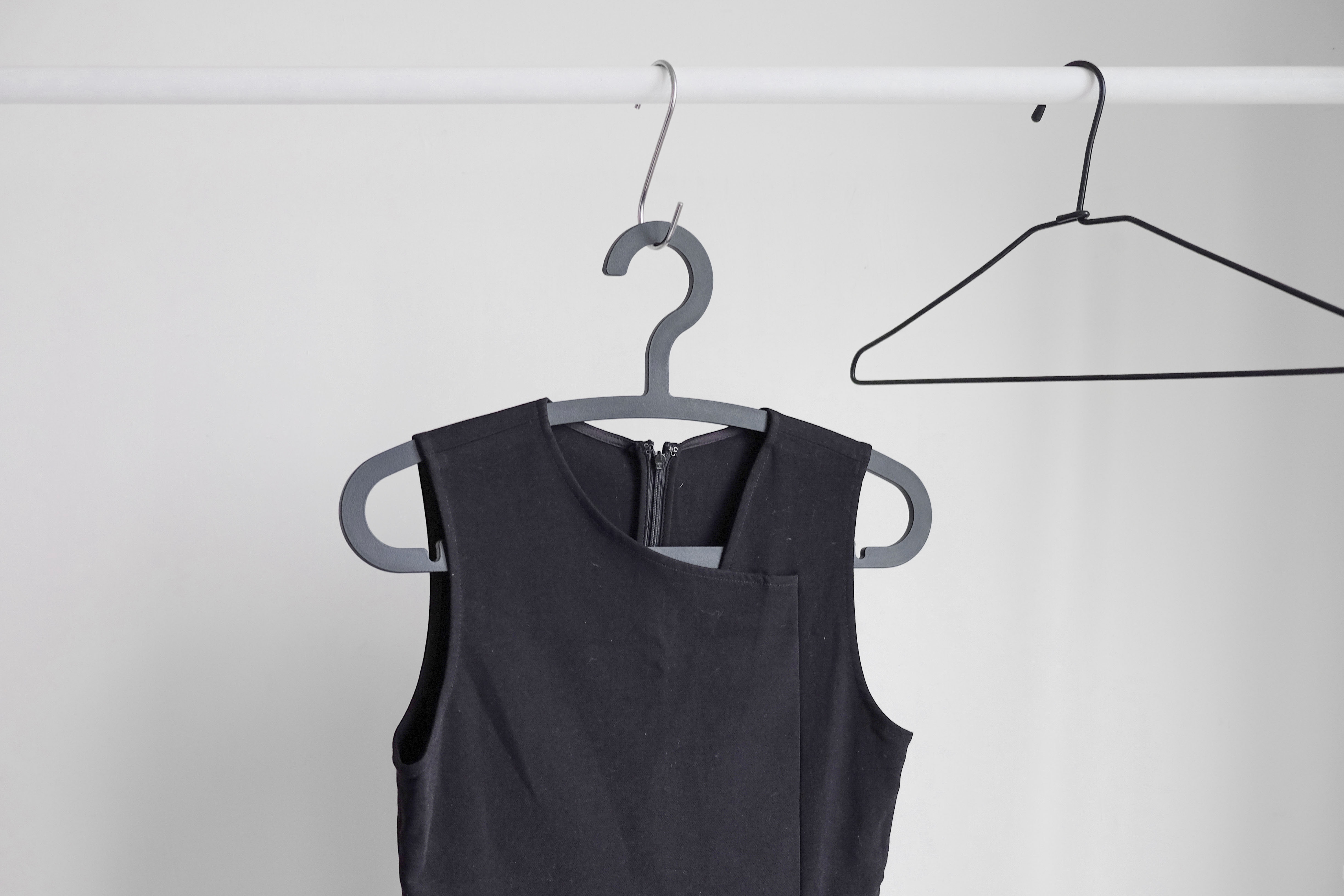
 Claire Florine is a writer living on the Far Southside of Chicago. Wife to a visionary, mommy to two wee ones, and a lover a good cup of black coffee, she seeks to simply life by pursuing meaningful minimalism, gobs of gratitude, and contentment in all situations. Find her writing at
Claire Florine is a writer living on the Far Southside of Chicago. Wife to a visionary, mommy to two wee ones, and a lover a good cup of black coffee, she seeks to simply life by pursuing meaningful minimalism, gobs of gratitude, and contentment in all situations. Find her writing at  For December, the theme on the blog is “The Other Side of Advent.” Let me know if you’re still interested in guest posting (I’m usually willing to extend deadlines)! Check
For December, the theme on the blog is “The Other Side of Advent.” Let me know if you’re still interested in guest posting (I’m usually willing to extend deadlines)! Check 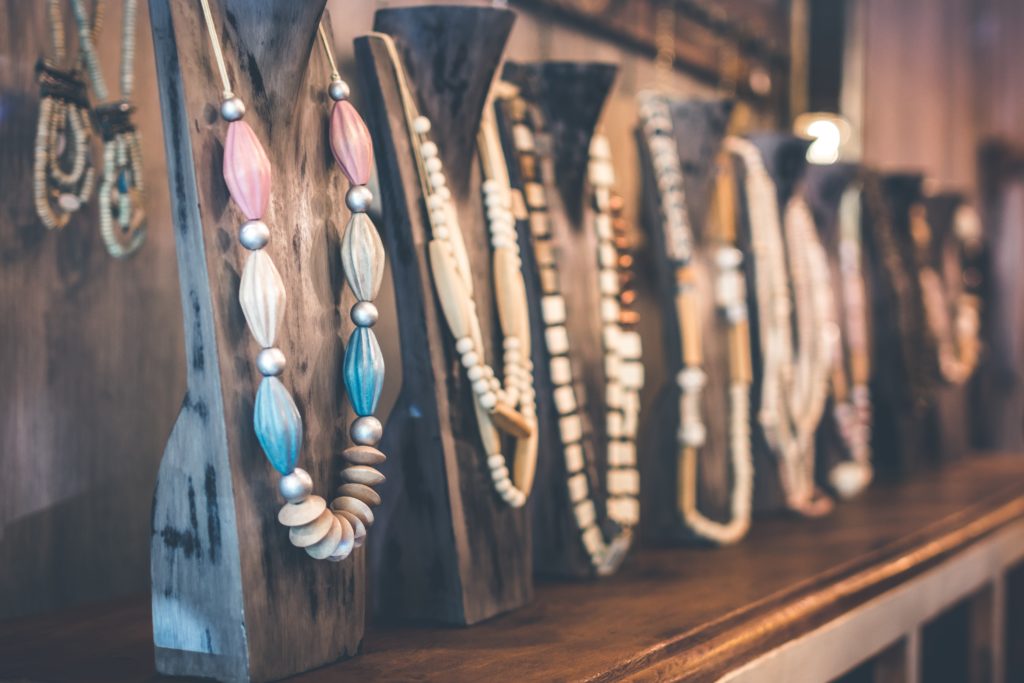
 Beth Watkins spent the last 6 years working in North and Sub-Saharan Africa with street children, refugees, and other vulnerable populations. She is currently settling back in the US with her immigrant husband and writes about living toward the kingdom of God and flailing awkwardly into neighbor-love at her
Beth Watkins spent the last 6 years working in North and Sub-Saharan Africa with street children, refugees, and other vulnerable populations. She is currently settling back in the US with her immigrant husband and writes about living toward the kingdom of God and flailing awkwardly into neighbor-love at her 
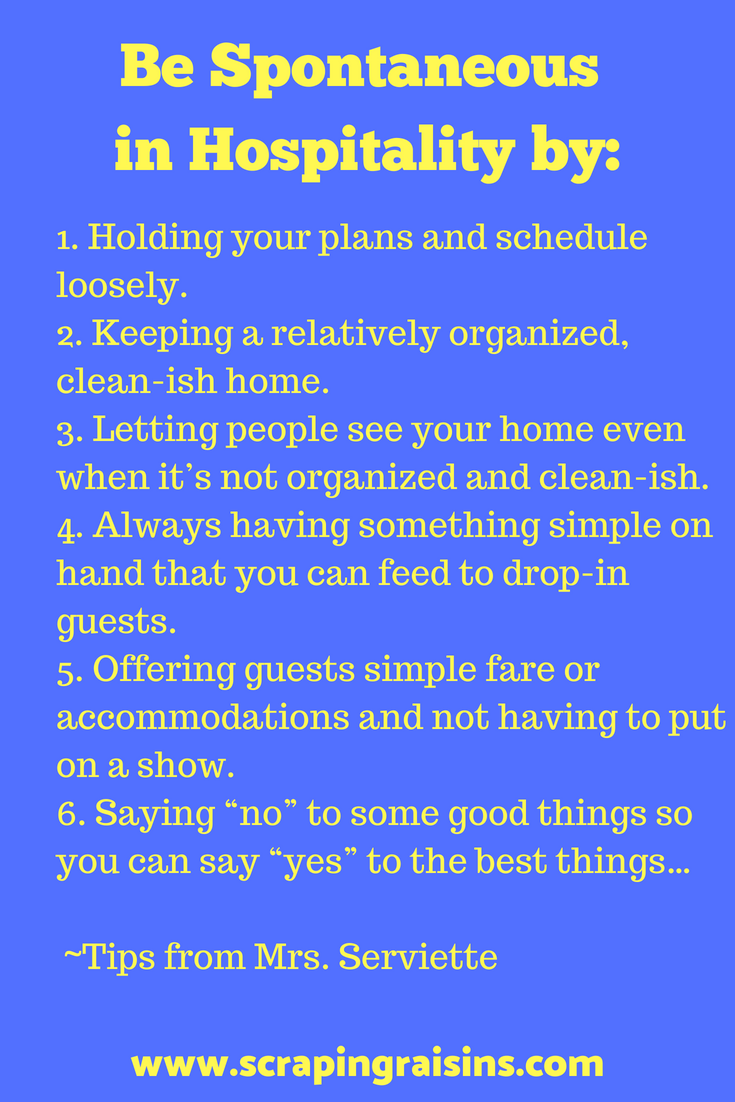
 Mrs. Serviette and her husband, Mr. Serviette, are North Americans living in Germany. They enjoy opening their home to people of all different cultures, backgrounds and religions. Their adventures in hospitality inspired Mrs. Serviette to to start her blog, The Serviette, which encourages people to share their tables in a way that bridges cultural and religious gaps, shows creativity, and serves others. Follow her at her
Mrs. Serviette and her husband, Mr. Serviette, are North Americans living in Germany. They enjoy opening their home to people of all different cultures, backgrounds and religions. Their adventures in hospitality inspired Mrs. Serviette to to start her blog, The Serviette, which encourages people to share their tables in a way that bridges cultural and religious gaps, shows creativity, and serves others. Follow her at her  The theme for August is “Homelessness, Refugees & the Stranger,” so send me a post for that, too, if you have a good idea!
The theme for August is “Homelessness, Refugees & the Stranger,” so send me a post for that, too, if you have a good idea! 




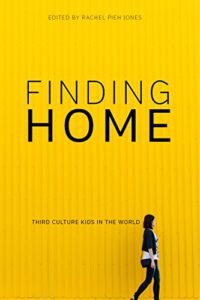 We’re doing a giveaway of the e-version of this book of essays by various writers about what it’s like to raise or be a Third Culture Kid (TCK). To enter, simply sign up for
We’re doing a giveaway of the e-version of this book of essays by various writers about what it’s like to raise or be a Third Culture Kid (TCK). To enter, simply sign up for 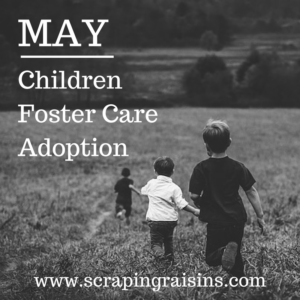
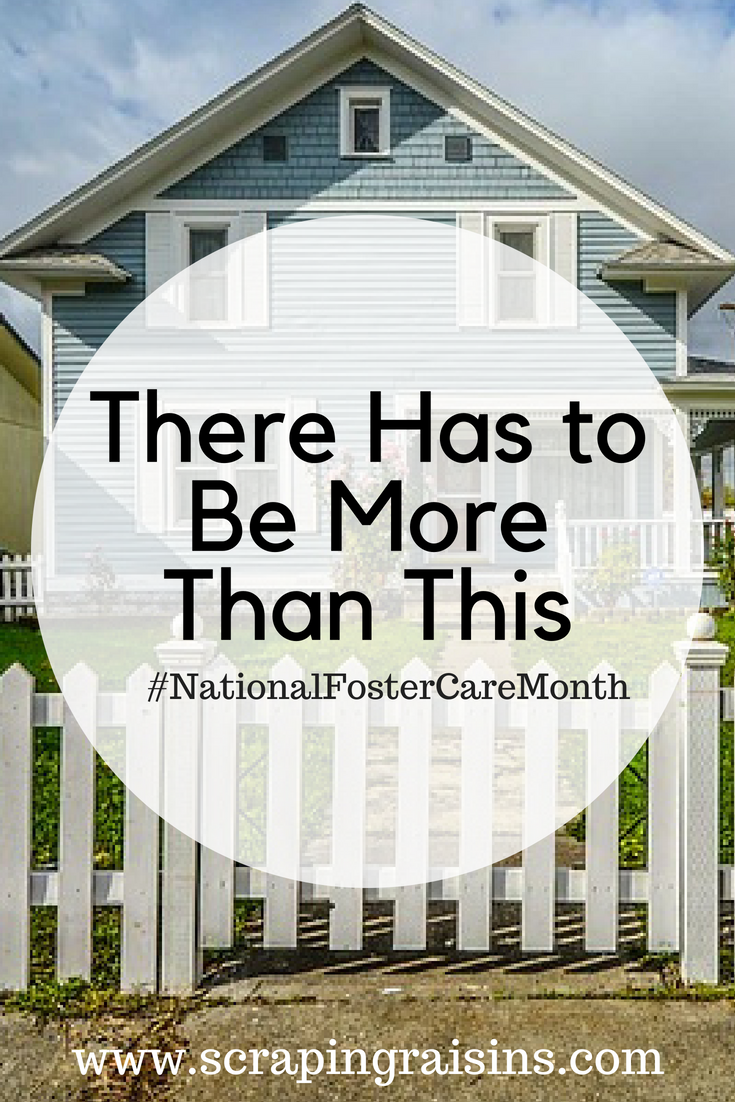




































 * Images from various shops
* Images from various shops

